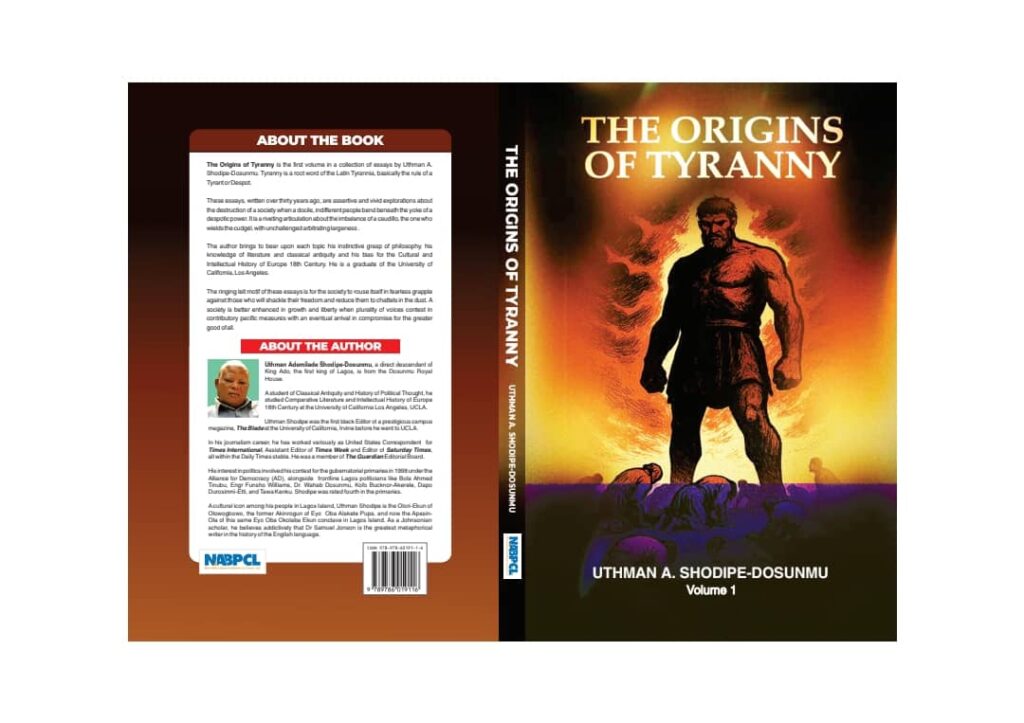- Safiu Kehinde
A former Editor of Daily Times newspaper, Prince Uthman Ademilade Shodipe-Dosunmu, has released a 30-chapter book ‘The Origins of Tyranny’.
This was disclosed in a statement made available to NPO Reports on Tuesday.
According to the statement, the Origins of Tyranny is the first volume in a collection of essays by Shodipe-Dosunmu, a direct descendant of King Ado, the first king of Lagos.
The ex-Daily Times edtitor, who hails from Dosunmu Royal House, is a graduate of University of California, Los Angeles.
As explained in the statement, tyranny is a root word of the Latin Tyrannia which basically mean the rule of a Tyrant or Despot.
These essays, written over thirty years, according to Shodipe-Dosunmu, “are assertive and vivid explorations about the destruction of a society when a docile, indifferent people bend beneath the yoke of a despotic power.
“It is a riveting articulation about the imbalance of a caudillo, the one who wields the cudgel, with unchallenged arbitrating largeness”.
The author brings to bear upon each topic his instinctive grasp of philosophy, his knowledge of literature and classical antiquity and his bias for the Cultural and Intellectual History of Europe 18th Century.
He explained that the explained that the essence of the essays is to inspire society to break free from the oppressive grip of those in power and enhance societal growth and liberty.
“The ringing leit motif of these essays is for the society to rouse itself in fearless grapple against those who will shackle their freedom and reduce them to chattels in the dust.
“A society is better enhanced in growth and liberty when plurality of voices contest in contributory pacific measures with an eventual arrival in compromise for the greater good of all”. He said.
Below is a snippet of the first chapter:
CHAPTER ONE
HOW VILLAINY BECOMES ROUTINE
First Published in The Guardian, Tuesday September 24, 1996.
PERHAPS, more than anyone else, it was the Nazarene who had a total grasp of the bounds of heroic identification, the limits of righteous defiance amid the buffetings of iniquity. From the profound reaches of his beatific vision the Nazarene could discern the diminishing recourse of the human nature. He could see the faithlessness of the human vista, the wavering promptings of those harassed by the cruel annoyances of fate…


